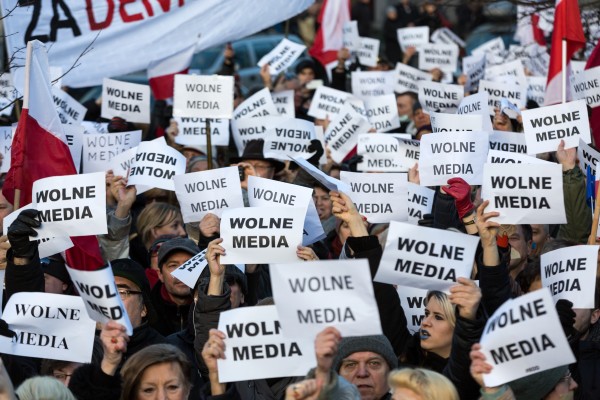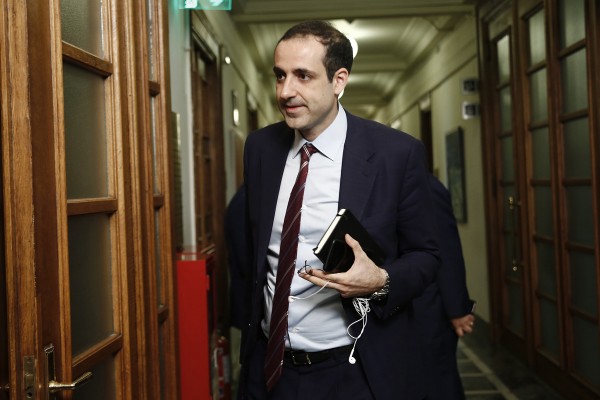H.E. Vladimir Putin
President
The Kremlin
Moscow
Russia
Vienna, 7 December 2000
Your Excellency,
The International Press Institute (IPI), the global network of editors and media executives, is deeply concerned at the methods employed by the Moscow Air Transport prosecutor’s office during its raid on the offices of ORT Television.
According to the information before IPI, investigators from the prosecutor’s office, accompanied by armed and masked police, searched the ORT offices on 5 December and seized a number of financial documents. The reason for the raid is related to ORT’s alleged failure to pay customs duties on foreign films it had brought into Russia and broadcast.
IPI believes that the use of armed police goes beyond what could be considered a necessary precaution on the part of the investigators, especially as ORT appears to have co-operated with the investigation by handing over documents when requested to do so. The search also interfered with the station’s operations.
While appreciating the fact that the prosecutor general, Vladimir Ustinov, has ordered an internal inquiry into the incident, the use of such excessive force is deeply troubling when placed in the context of a distressing pattern of government acts towards the media.
On 11 May, armed tax police searched the offices of Media-Most, an independent media company know for its criticism of the government’s policies. In addition, there have been negotiations that may lead to the state controlled Gazprom, Media-Most’s main creditor, gaining effective control of the media company. IPI believes that the government’s actions against Media-Most are directly related to its reporting.
In addition, on 17 November, the Federal Security Service (FSB) searched the offices of the weekly Versija. Reportedly, the search was connected to Versija’s publishing of pictures depicting a submarine that allegedly collided with the sunken submarine Kursk. FSB officers seized documents and a computer during the raid. The search threatened to interrupt the publication of Versija and is a violation of articles 41 and 49 [4] of the Law of the Russian Federation on Mass-Media, which obliges journalists and editors to keep their sources of information confidential. Moreover, the editor responsible for the publication of the photos, Dmitry Filimonov, was questioned for four hours by FSB officers.
When taken together, incidents like these appear to be part of a concerted effort by the government to extend its control over the media. This view is supported by the intimidation of journalists reporting on the Chechen conflict and the decision to adopt a new Doctrine on Information Security; a document which discloses a deep-seated suspicion on the part of the authorities to the media.
While passing no judgement on the decision to initiate investigations into the business dealings of Media-Most and ORT, IPI wishes to stress the fact that the methods employed are disproportionate to the alleged crimes. Indeed, it would appear that the use of a quasi-military force to carry out a search for corroborative evidence in a criminal case is nothing more than a heavy handed attempt to intimidate media outlets.
We call on Your Excellency to take all necessary steps to ensure that your statement that “Freedom of speech remains an unshakeable value of Russian democracy” is upheld. Furthermore, IPI reminds you that a free and independent media is an integral part of any democracy and that Russia is a signatory to the Universal Declaration of Human Rights which guarantees the right to receive and impart information under Article 19.
We thank you for your attention.
Yours sincerely,
Johann P. Fritz
Director


